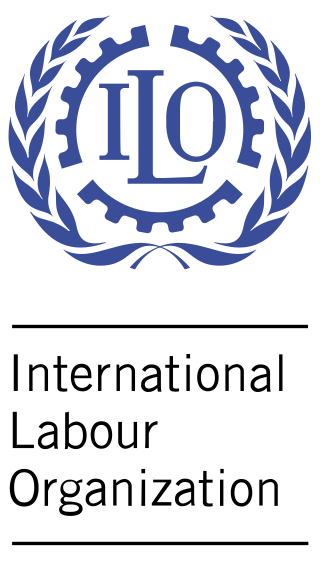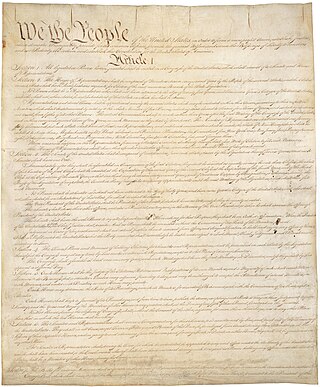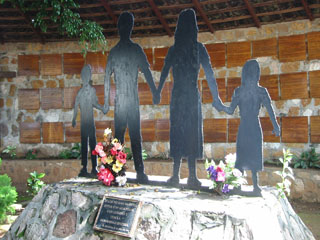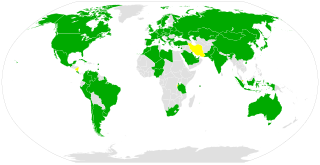| C117 | |
|---|---|
| ILO Convention | |
| Date of adoption | June 22, 1962 |
| Date in force | April 23, 1964 |
| Classification | Economic and Social Policy |
| Subject | Social Policy |
| Previous | Final Articles Revision Convention, 1961 |
| Next | Equality of Treatment (Social Security) Convention, 1962 |
Social Policy (Basic Aims and Standards) Convention, 1962 is an International Labour Organization Convention.
It was established in 1962, with the preamble stating:
Having decided upon the adoption of certain proposals concerning the revision of the Social Policy (Non-Metropolitan Territories) Convention, 1947, which is the tenth item on the agenda of the Session, primarily with a view to making its continued application and ratification possible for independent States,...
As of the end of 2015, the treaty has been ratified by 33 states.

The International Labour Organization (ILO) is a United Nations agency whose mandate is to advance social and economic justice by setting international labour standards. Founded in October 1919 under the League of Nations, it is one of the first and oldest specialised agencies of the UN. The ILO has 187 member states: 186 out of 193 UN member states plus the Cook Islands. It is headquartered in Geneva, Switzerland, with around 40 field offices around the world, and employs some 3,381 staff across 107 nations, of whom 1,698 work in technical cooperation programmes and projects.

The Constitution of the United States is the supreme law of the United States of America. It superseded the Articles of Confederation, the nation's first constitution, in 1789. Originally comprising seven articles, it delineates the national frame and constraints of government. The Constitution's first three articles embody the doctrine of the separation of powers, whereby the federal government is divided into three branches: the legislative, consisting of the bicameral Congress ; the executive, consisting of the president and subordinate officers ; and the judicial, consisting of the Supreme Court and other federal courts. Article IV, Article V, and Article VI embody concepts of federalism, describing the rights and responsibilities of state governments, the states in relationship to the federal government, and the shared process of constitutional amendment. Article VII establishes the procedure subsequently used by the 13 states to ratify it. The Constitution of the United States is the oldest and longest-standing written and codified national constitution in force in the world today.

The American Convention on Human Rights, also known as the Pact of San José, is an international human rights instrument. It was adopted by many countries in the Western Hemisphere in San José, Costa Rica, on 22 November 1969. It came into force after the eleventh instrument of ratification was deposited on 18 July 1978.

The Constitutive Act of the African Union sets out the codified framework under which the African Union is to conduct itself. It was signed on 11 July 2000 at Lomé, Togo. It entered into force after two thirds of the 53 signatory states ratified the convention on 26 May 2001. When a state ratifies the Constitutive Act, it formally becomes a member of the AU. All 55 signatory states have ratified the document, with South Sudan and Morocco ratifying as the last African states.

The International Convention on the Protection of the Rights of All Migrant Workers and Members of Their Families is a United Nations multilateral treaty governing the protection of migrant workers and families. Signed on 18 December 1990, it entered into force on 1 July 2003 after the threshold of 20 ratifying States was reached in March 2003. The Committee on Migrant Workers (CMW) monitors implementation of the convention, and is one of the seven UN-linked human rights treaty bodies. The convention applies as of October 2022 in 58 countries.

The Forced Labour Convention, the full title of which is the Convention Concerning Forced or Compulsory Labour, 1930 (No.29), is one of eight ILO fundamental conventions of the International Labour Organization. Its object and purpose is to suppress the use of forced labour in all its forms irrespective of the nature of the work or the sector of activity in which it may be performed. The Convention defines forced labour as "all work or service which is exacted from any person under the menace of any penalty and for which the said person has not offered himself voluntarily", with few exceptions like compulsory military service.
Social Policy Convention, 1947 is an International Labour Organization Convention.
The Indigenous and Tribal Peoples Convention, 1989 is an International Labour Organization Convention, also known as ILO Convention 169, or C169. It is the major binding international convention concerning indigenous peoples and tribal peoples, and a forerunner of the Declaration on the Rights of Indigenous Peoples.
Equality of Treatment Convention, 1962 is an International Labour Organization Convention.
Part-Time Work Convention, 1994 is an International Labour Organization Convention for protection of part-time workers including the rights to equal pay for equal work.
Private Employment Agencies Convention, 1997 is an International Labour Organization Convention.

The Convention on Registration of Objects Launched into Outer Space was adopted by the United Nations General Assembly in 1974 and went into force in 1976. As of February 2022, it has been ratified by 72 states.
The United States has signed the United Nations Convention on the Rights of the Child (UNCRC); however, it remains the only United Nations member state to have not ratified it.
South Centre is an intergovernmental organisation of developing nations, established by an intergovernmental agreement (treaty), which came into force on 31 July 1995, with its headquarters in Geneva, Switzerland. It functions as an independent policy think tank, whilst also holding observer status at the United Nations and other development agencies.
The Convention on the association of the Netherlands Antilles with the European Economic Community is an international agreement amending the Treaty establishing the European Economic Community, with the aim of awarding OCT status to the Netherlands Antilles, which was a constituent country of the Kingdom of the Netherlands from 1954 until 2010. A full treaty revision was needed because Belgium, France, Germany, Italy, and Luxembourg wanted to add a protocol on the import of refined petroleum products from the Netherlands Antilles.

The Maritime Labour Convention (MLC) is an International Labour Organization (ILO) convention, number 186, established in 2006 as the fourth pillar of international maritime law and embodies "all up-to-date standards of existing international maritime labour Conventions and Recommendations, as well as the fundamental principles to be found in other international labour Conventions". The other pillars are the SOLAS, STCW and MARPOL. The treaties applies to all ships entering the harbours of parties to the treaty (port states), as well as to all ships flying the flag of state party (flag states, as of 2021: over 91 per cent).

The Council of Europe Convention on Preventing and Combating Violence Against Women and Domestic Violence, better known as the Istanbul Convention, is a human rights treaty of the Council of Europe opposing violence against women and domestic violence which was opened for signature on 11 May 2011, in Istanbul, Turkey. The convention aims at prevention of violence, victim protection and to end the impunity of perpetrators. As of March 2019, it has been signed by 45 countries and the European Union. On 12 March 2012, Turkey became the first country to ratify the convention, followed by 37 other countries from 2013 to 2022. The Convention came into force on 1 August 2014. In 2021, Turkey became the first and only country to withdraw from the convention, after denouncing it on 20 March 2021. The convention ceased to be effective in Turkey on 1 July 2021, following its denunciation. On 1 June 2023 the Council of the European Union approved the EU's accession to the Istanbul Convention.

The Convention on Domestic Workers, formally the Convention concerning Decent Work for Domestic Workers is a convention setting labour standards for domestic workers. It is the 189th ILO convention and was adopted during the 100th session of the International Labour Organization, in 16 June 2011. It entered into force on 5 September 2013.
International labour law is the body of rules spanning public and private international law which concern the rights and duties of employees, employers, trade unions and governments in regulating Work and the workplace. The International Labour Organization and the World Trade Organization have been the main international bodies involved in reforming labour markets. The International Monetary Fund and the World Bank have indirectly driven changes in labour policy by demanding structural adjustment conditions for receiving loans or grants. Issues regarding Conflict of laws arise, determined by national courts, when people work in more than one country, and supra-national bodies, particularly in the law of the European Union, has a growing body of rules regarding labour rights.

The Treaties of the European Union are a set of international treaties between the European Union (EU) member states which sets out the EU's constitutional basis. They establish the various EU institutions together with their remit, procedures and objectives. The EU can only act within the competences granted to it through these treaties and amendment to the treaties requires the agreement and ratification of every single signatory.